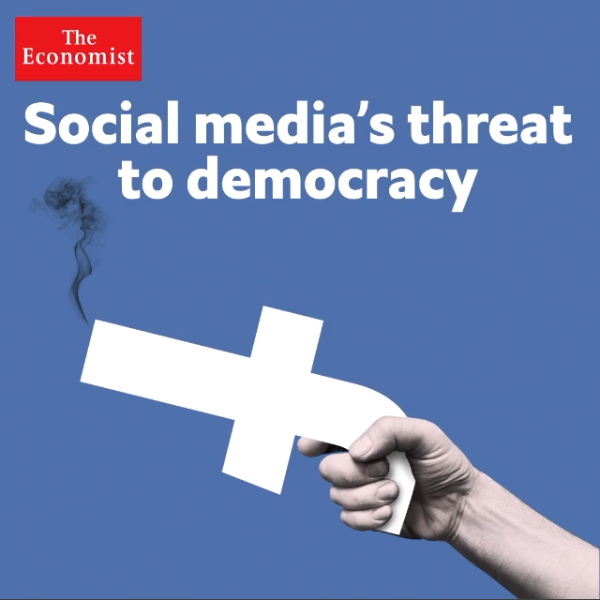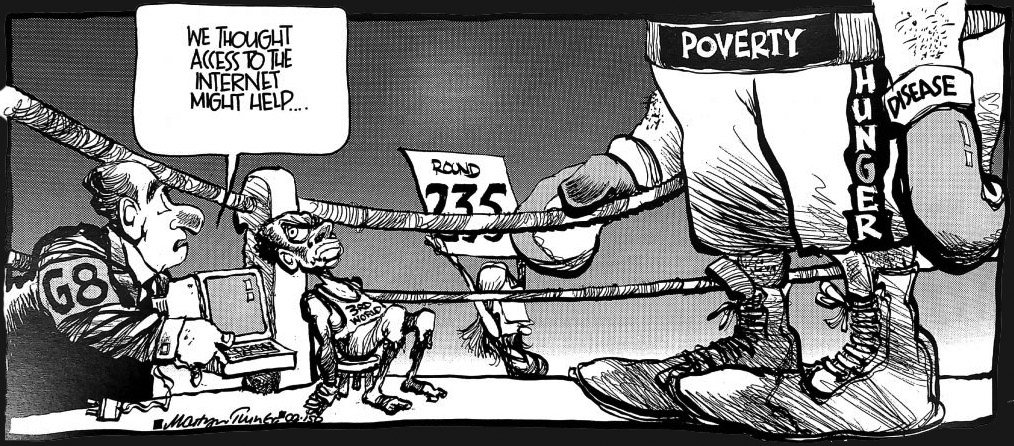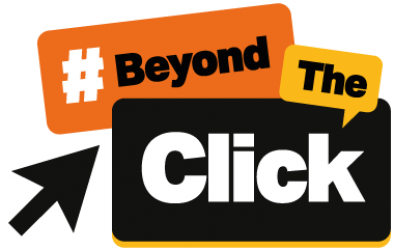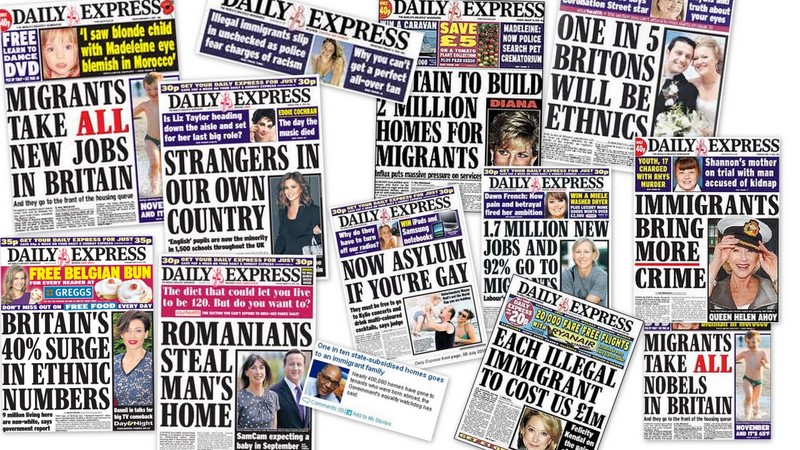Welcome to #BeyondTheClick.
HOW MANY ADVERTS did you wade through to arrive here today? How many ideas were carefully curated and packaged in order to peak your interest?
Who paid for those ads, and what’s the message? Is the message authentic? How can you tell? Whose voices were includes …. and what perspectives are missing?
For a moment, consider the results from a Eurobarometer survey in early 2018: 83% of those who responded (from over 26,000 people) believed that ‘fake news is a danger to democracy’; 37% said that they come across fake news every day or almost every day, and a further 31% said that this happens at least once a week.
This suggests we have a problem whether we are in Silicon Valley, Melbourne, Moscow, London or Dublin.

The explosion of fake news and (often deliberate) misinformation in recent years and its spread into digital landscapes and public life has caused many educationalists to pause and take notice. Are the efforts of traditional journalism, national authorities and broadcasting management enough to stemming the tide of fake news? And yet, we cannot separate our way of life from the march and benefits of new technology, and its impact on learning.
Facebook reported in 2015, for example:
- 8 billion video views per day are being generated on the social media platform
- The amount of video from people and from ‘brands’ in News Feed has increased 3.6 times year-over-year
- The number of video posts per person has increased 75% globally and 94% in the United States of America.
Global digital citizen
[gloh-buh l, dij-i-tl sit-uh-zuh n, ‐suh n]
noun
a person who develops the skills and knowledge to effectively use the Internet and other information technology as part of fostering community, especially in order to participate responsibly in social and civic activities in challenging unjust and unequal realities in the world
We’re teaching students how to become curious, adaptable and energetic global digital citizens.
In exploring the collision of technology with new learning behaviours, the #BeyondTheClick toolkit, produced as part of a broad collaboration led by 80:20 Educating and Acting for a Better World with the Edmund Rice Centre for Justice and Community Education, Concern Worldwide and the Irish Development Education Association, presents a response to this reality – dissecting, analysing and supporting a critical response across digital communities, both online and offline.
#BeyondTheClick is a development education toolkit for educators that supports exploration of digital landscapes and tools (social media, digital tools etc.) and how these can be used to in education for sustainable development in a human rights and justice context in a world of deep (and deepening ) inequality.
This inequality is not only economic and political, it also exists in access to technologies, the production of digital knowledge and where it is routinely used to disrupt and undermine democracy and to move genuine debate into the digital shadows.

#BeyondTheClick seeks to:
- explore how 20% of the world (or less) shapes our understanding of the other 80%
- understand that the deliberate spreading of fake news is nothing new – learning to read, decipher and defeat it is a key 21st century skill
- explore and reflect on 20 cutting edge examples of how change can happen in an age of digital activism from Australia, China, Germany, India, Ireland, South Africa, sub-Saharan Africa, Turkey, Saudi Arabia, the UK and the US
- interrogate ‘clicktivism’ – is it a starting point or an end point in the struggle for human rights?
#BeyondTheClick contains:
- a learning framework built on 8 strands
- 25 activities; 3 per learning strand
- a guide for educators – ideas for adapting the toolkit as part of workshop delivery in non-formal and formal education
- 10 key elements of global digital citizenship – drawn from the 20 case studies and a range of other reference points in education for sustainable development, global citizenship education, digital literacy and human rights education
- our list of the top 5 recommended resources, websites, videos, open source tools and more
〉〉〉〉〉〉 Adapt, share and remix #BeyondTheClick 〈〈〈〈〈〈
Stay in touch, share ideas, and case studies and amplify your actions by keeping us posted on your progress as you build digital awareness and digital communities as you go beyond clicks into meaningful global digital actions.
You can reach us by tweeting @our8020world, tagging us on Facebook @8020world and using the hashtag #beyondtheclick or order the 10 Elements poster.
Updates:
- An extended adaptation of this project was produced by the National Adult Literacy Agency and 80:20 based on follow-on workshops with adult literacy educators and learners from 2019-2022. This resulted in publication of Facts Matter: A Guide to Building Critical Media Literacy in Today’s World, an educator’s workbook launched on the UN International Day for Universal Access to Information in 2021.
- A public social media ‘clap’ promoting the internet as a source for social justice and for confronting fake launched on 10th August 2018 in advance of International Youth Day and on the anniversary of clashes over a show of hundreds of white nationalist rally in Charlottesville, Virginia.
How many Tweets are sent around the world every…
*on average, as reported by Internet Live Stats
One commentator, Gianfranco Polizzi argues that digital literacy in an age characterised by misinformation and distrust in the media:
- Is not only about evaluating online content but also understanding the internet’s production and consumption processes, its democratising potential and its structural constraints.
- Should be understood as essential in protecting people of all ages from misinformation, as well as in fostering social inclusion and the civic and political empowerment that comes from engaging reflexively with digital media.
- May enable us to reflect critically on social issues, and to engage in both institutional and non-institutional politics. An example of the latter might be involved in alternative media or activism. Nevertheless, in order to be digital, critical digital literacy needs to incorporate understandings of the internet and the digital environment.
- Should remind us that the public sector – and the education system in particular – have a responsibility to promote and implement a holistic approach to critical digital literacy, so as to contribute to social inclusion and democratic participation mediated by digital technologies.
See Gianfranco Polizzi’s summary on the LSE Media Policy Project Blog.
With thanks: this toolkit draws inspiration from and has been adapted from the Teaching Tolerance Digital Literacy Framework produced by Teaching Tolerance, a project of the Southern Poverty Law Center, Montgomery, Alabama. We are especially grateful to our colleagues in the Center for their ready agreement to allow us to adapt and reprint their work
#BeyondTheClick was launched at the Digital Citizenship Summit Ireland 2018 on April 28th, 2018.


